Rightlessness: Testimony and Redress in U.S. Prison Camps since World War II
In this bold book, A. Naomi Paik grapples with the history of U.S. prison camps that have confined people outside the boundaries of legal and civil rights. Removed from the social and political communities that would guarantee fundamental legal protections, these detainees are effectively rightless, stripped of the right even to have rights. Rightless people thus expose an essential paradox: while the United States purports to champion inalienable rights at home and internationally, it has built its global power in part by creating a regime of imprisonment that places certain populations perceived as threats beyond rights. The United States' status as the guardian of rights coincides with, indeed depends on, its creation of rightlessness.
Yet rightless people are not silent. Drawing from an expansive testimonial archive of legal proceedings, truth commission records, poetry, and experimental video, Paik shows how rightless people use their imprisonment to protest U.S. state violence. She examines demands for redress by Japanese Americans interned during World War II, testimonies of HIV-positive Haitian refugees detained at Guantánamo in the early 1990s, and appeals by Guantánamo’s enemy combatants from the War on Terror. In doing so, she reveals a powerful ongoing contest over the nature and meaning of the law, over civil liberties and global human rights, and over the power of the state in people's lives.
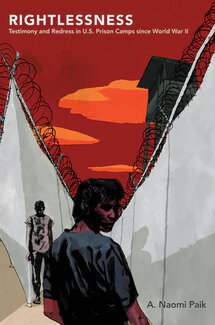
Casanova the Irresistible
His is a name synonymous with seduction. His was a life lived without limits. Giacomo Casanova left behind thousands of pages detailing his years among Europe's notable and noble. In Casanova the Irresistible, Philippe Sollers--prolific intellectual and revered visionary of the French avant-garde--proffers a lively reading of and guide to the famed libertine's sprawling memoir.
Armine Kotin Mortimer's translation of Sollers's reading tracks the alluring Venetian through the whole of his astounding and disreputable life. Eschewing myth, Sollers dares to present the plain realities of a man "simple, direct, courageous, cultivated, seductive, funny. A philosopher in action." The lovers are here, and the ruses and adventures. But Sollers also rescues Casanova the writer, a gifted composer of words who reigns as a titan of eighteenth-century literature. As always, Sollers seeks to shame society for its failure to recognize its failings. By admiring those of Casanova's admirable qualities present in himself, Sollers spurns bourgeois hypocrisy and cliché to affirm a jocund philosophy of life devoted to the twinned pursuits of pleasure and joy.
A masterful translation that captures Sollers's idiosyncratic style, Casanova the Irresistible escorts readers on a journey into the heads and hearts of two singular personalities.
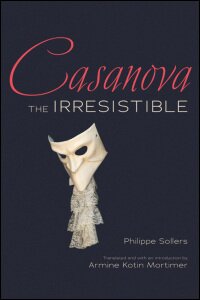
Fashioning Lives: Black Queers and the Politics of Literacy
Fashioning Lives: Black Queers and the Politics of Literacy analyzes the life stories of sixty Black lesbian, gay, bisexual, transgender, and queer (LGBTQ) people along with archival documents, literature, and film. Author Eric Darnell Pritchard provides a theoretical framework for studying the literacy work of Black LGBTQ people, who do not fit into the traditional categories imposed on their language practices and identities. Examining the myriad ways literacy is used to inflict harm, Pritchard discusses how these harmful events prompt Black LGBTQ people to ensure their own survival by repurposing literacy through literacy performances fueled by accountability to self and communal love towards social and political change, a process the author calls “restorative literacies.” Pritchard highlights restorative literacies in literacy institutions (e.g., libraries, schools), historical records repositories, religious and spiritual spaces, parties, community events, activist organizations, and digital spheres. This trailblazing study draws connections between race and queerness in literacy, composition, and rhetoric and provides the basis for a sustainable dialogue on their intersections in the discipline.
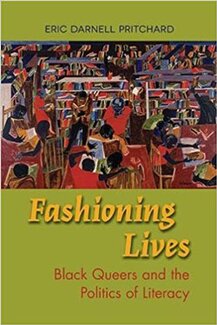
Forgotten Dreams: Revisiting Romanticism in the Cinema of Werner Herzog
Werner Herzog (b. 1942) is perhaps the most famous living German filmmaker, but his films have never been read in the context of German cultural history. And while there is a surfeit of film reviews, interviews, and scholarly articles on Herzog and his work, there are very few books devoted to his films, and none addressing his entire career to date. Until now.
Forgotten Dreams offers not only an analytical study of Herzog's films but also a new reading of Romanticism's impact beyond the nineteenth century. It argues that his films re-envision and help us better understand a critical stream in Romanticism, and places the films in conversation with other filmmakers, authors, and philosophers in order to illuminate that critical stream. The result is a lively reconnection with Romantic themes and convictions that have been partly forgotten in the midst of Germany's postwar rejection of much of Romantic thought, yet are still operative in German culture today. The film analyses will interest scholars of film, German Studies, and Romanticism as well as a broader public interested in Herzog's films and contemporary German cultural debates. The book will also appeal to those interested in the ongoing renegotiation - by Western and other cultures - of relationships between reason and passion, civilization and wild nature, knowledge and belief.
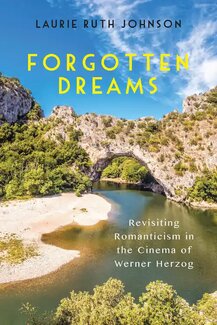
The Rhetoric of Hindu India: Language and Urban Nationalism
This book examines the late twentieth-century rise of the urban, right-wing Hindu nationalist ideology known as metropolitan Hindutva. This ideology, the book assesses, aspires to be a pan-Indian, urban form that is home to the emerging, digitally enabled, technocratic middle classes of the nation. Through close analyses of the writings of a range of self-styled public intellectuals, from Arun Shourie and Swapan Dasgupta to Chetan Bhagat and Amish Tripathi, this book maps this new avatar of Hindutva. Finally, in analyzing the language of metropolitan Hindutva, it arrives at an emerging idea of India as part of what Amitav Ghosh has called a contemporary Anglophone empire. This is the first extended scholarly effort to theorize a politics of language in relation to the dangers of such an imperializing Hindutva.
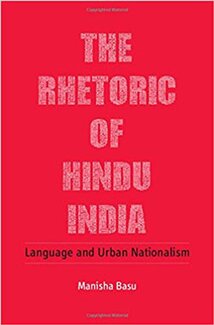
What Is a Public Education and Why We Need It: A Philosophical Inquiry into Self-Development, Cultural Commitment, and Public Engagement
The unique mission of a public education is to reproduce a civic public. For the most part this will not happen in a vacuum and requires specific institutions—the most prominent of which are the publicschools. Publicly supported schools have other functions as well. They socialize; train, produce a workforce and, hopefully, promote individual growth and autonomy. True, all of these functions may be carried on by private or religious schools as well. However, public schools should have the additional responsibility of reproducing a civic public for a diverse pluralistic society. The problem is that in the context of neoliberal ideology, where all the other educational functions are reduced to economic ones within a market context where competition (nation to nation, state to state, community to community, school to school, teacher to teacher, student to student) rules, the public function becomes less and less central and more and more difficult to carry out. This book suggests ways to change this by bring to idea of a true public education back into focus.
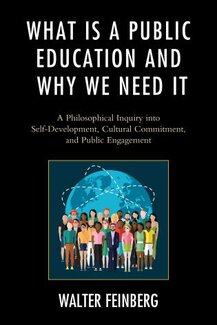
Descended from Hercules: Biopolitics and the Muscled Male Body on Screen
Muscles, six-pack abs, skin, and sweat fill the screen in the tawdry and tantalizing peplum films associated with epic Italian cinema of the 1950s and 1960s. Using techniques like slow motion and stopped time, these films instill the hero’s vitality with timeless admiration and immerse the hero’s body in a world that is lavishly eroticized but without sexual desire. These “sword and sandal” films represent a century-long cinematic biopolitical intervention that offers the spectator an imagined form of the male body—one free of illness, degeneracy, and the burdens of poverty—that defends goodness with brute strength and perseverance, and serves as a model of ideal citizenry. Robert A. Rushing traces these epic heroes from Maciste in Cabiria in the early silent era to contemporary transnational figures like Arnold Schwarzenegger in Conan the Barbarian, and to films such as Zach Snyder’s 300. Rushing explores how the very tactile modes of representation cement the genre’s ideological grip on the viewer.
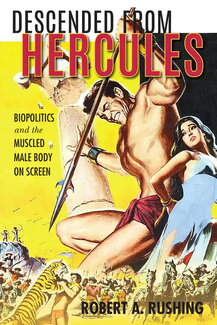
Displaying Death and Animating Life: Human-Animal Relations in Art, Science, and Everyday Life
The number of ways in which humans interact with animals is almost incalculable. From beloved household pets to the steak on our dinner tables, the fur in our closets to the Babar books on our shelves, taxidermy exhibits to local zoos, humans have complex, deep, and dependent relationships with the animals in our ecosystems. In Displaying Death and Animating Life, Jane C. Desmond puts those human-animal relationships under a multidisciplinary lens, focusing on the less obvious, and revealing the individualities and subjectivities of the real animals in our everyday lives.
Desmond, a pioneer in the field of animal studies, builds the book on a number of case studies. She conducts research on-site at major museums, taxidermy conventions, pet cemeteries, and even at a professional conference for writers of obituaries. She goes behind the scenes at zoos, wildlife clinics, and meetings of pet cemetery professionals. We journey with her as she meets Kanzi, the bonobo artist, and a host of other animal-artists—all of whom are preparing their artwork for auction. Throughout, Desmond moves from a consideration of the visual display of unindividuated animals, to mourning for known animals, and finally to the marketing of artwork by individual animals. The first book in the new Animal Lives series, Displaying Death and Animating Life is a landmark study, bridging disciplines and reaching across divisions from the humanities and social sciences to chart new territories of investigation.
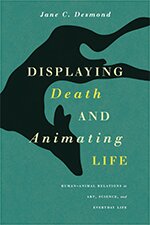
Special issue Occasion: "States of Welfare" (2011)
Lughz al-Qaf, Arabic translation from the Portuguese O enigma de Qaf, by Alberto Mussa
اللغز هو اللغة العربية ذاتها ، أصلها وتقاليدها ، وبدواتها ، وحريمها ، وحسابها ، وكتابتها ، وقصة تتعدد رواياتها فتصعب على التصديق . مما يزيد من سحرها. فى " لغز القاف" يلعب الروائى البرازيلى ألبرتو موسى دور باحث ينشد الحصول على شهادة فى الادب الجاهلى ، فيدور بمؤتمرات الادب العربى ومتاهات المكتبات ، ويوازن بين الأصالة والزيف فى نصوص عمرها مئات السنين ، وكان مرشده قصاص أعمى هو خورخى لويس بورخيس. ينتج عن هذه الرحلة الأدبية نثر شعرى ذو جمال نادر ، تتخلله معارف عن عالم شرقى قديم وشاسع ، طالما افتتن الغرب بتخيله . ولكتن ما يخبلنا غير محصور بعالم أسلاف الكاتب ذو الجبال الخرافية ، والشعراء ، والعفاريت الأسطورية . إنها الكتابة العربية ، تللك الشخصية التى تضاهى فتنتها كل ما سواها فى لغز القاف.
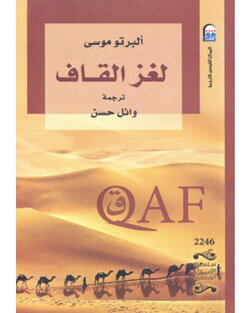
100 English Building
608 South Wright Street
Urbana, Illinois 61801